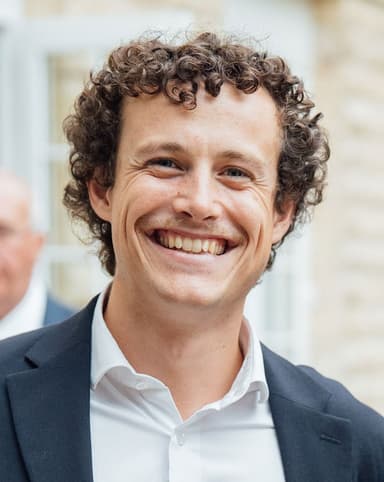Frank Wouters

Energy · Environmental Sustainability

Frank Wouters
To accelerate the development of a hydrogen system from scratch we need to decouple the production from the demand, both in time and place


Frank Wouters
Energy
To keep global warming below 1.5 °C, our energy systems need to be carbon emission free latest by 2050, and many countries have pledged to do so. A high-level model was built for a fictitious economy called Utopia to assess three pathways towards a zero-carbon economy by 2050: a gradual (linear) replacement of fossil fuels by clean energy, an accelerated pathway leading to a carbon free system by 2035, and a delayed pathway, in which replacement takes place from 2035 onwards. The model yields very clear results. The accelerated pathway is not only 21% cheaper than a gradual phasing out of fossil fuels, with accumulated savings of $4 trillion over a period of 30 years, but also the climate wins, with emissions reducing from 32.7 GT to 13.1 GT over the same period.
Recent publications
Frank Wouters

Energy · Environmental Sustainability
Readers also like

Olaoluwa John Adeleke
Power Grid

Glen Jordan
Sustainable Lifestyle

illuminem briefings
Labor Rights

Barnabé Colin
Biodiversity

Jamie Batho
Biodiversity

Alex Hong
Energy Transition

Steven W. Pearce
Adaptation

John Leo Algo
Ethical Governance

Gokul Shekar
Effects

Diego Balverde
Effects

Purva Jain
Energy Transition

Charlene Norman
Sustainable Business

Michael Wright
Agriculture

Vincent Ruinet
Power Grid

Yury Erofeev
Food

Simon Heppner
Effects

illuminem
Climate Change

Aniella Niyondiko
Climate Change

Elizabeth Markevitch
Climate Change

Maha Sheikh
Climate Change

Bruno Ferreira
Climate Change

Kristy Drutman
Climate Change

Buğra Avcı
Climate Change

Stutilina Pal
Climate Change

Amar Baatartsogt
Climate Change

Viviane Bondoma
Climate Change

Maggie Bukowa
Climate Change

Fiona Pelham
Climate Change

Constanza Gomez Mont
Climate Change

Ana Lucía Encinas
Climate Change

Gilles Vermot Desroches
Climate Change

Rafael Pástor
Climate Change

Richard Kachungu
Climate Change

Gayathri Vasudevan
Climate Change

Kadiatu A. Sheriff
Climate Change

Errachid Montassir
Climate Change

Marie Claire Cordonier-Segger
Climate Change

Basima Abdulrahman
Climate Change

Ederval Antonio
Climate Change

Ramil Azmammadov
Climate Change

Angela Chaudhuri
Climate Change

Maryam Bello
Climate Change

Sheela Patel
Climate Change

Sellah Bogonko
Climate Change

Nora Cabrera Velasco
Climate Change

Pablo Castellanos Ramelli
Climate Change

Franny Collingham
Climate Change

Annika Degen
Climate Change

Sebastian Groh
Climate Change

Gator Halpern
Climate Change

David Aaron Henry
Climate Change

Reyhan Jamalova
Climate Change

Shelly Kerketta
Climate Change

Michael Kakande
Climate Change

Fany Kiuru
Climate Change

Deepa Lama
Climate Change

Bushe Matis
Climate Change

Nduka Miracle
Climate Change

Khaled Noby Mohamed
Climate Change

Clara Molteni
Climate Change

Zeinaba Narabene
Climate Change

Rudy Ortega, Jr.
Climate Change

Anna Pavan
Climate Change

Ragy Ramadan
Climate Change

Gilberto Ribeiro de Oliveira Filho
Climate Change

Vasco Salvador Cossa
Climate Change

Rajesh Shah
Climate Change

Neal Spackman
Climate Change

Kilino Stojkov
Climate Change

Jessica Nga Tran
Climate Change

Miguel A. Torres
Climate Change

Lynn von Koch-Liebert
Climate Change

Diana Alejandra García Najera
Climate Change

Andrea Gori
Climate Change

Tobias Rossi
Minerals
